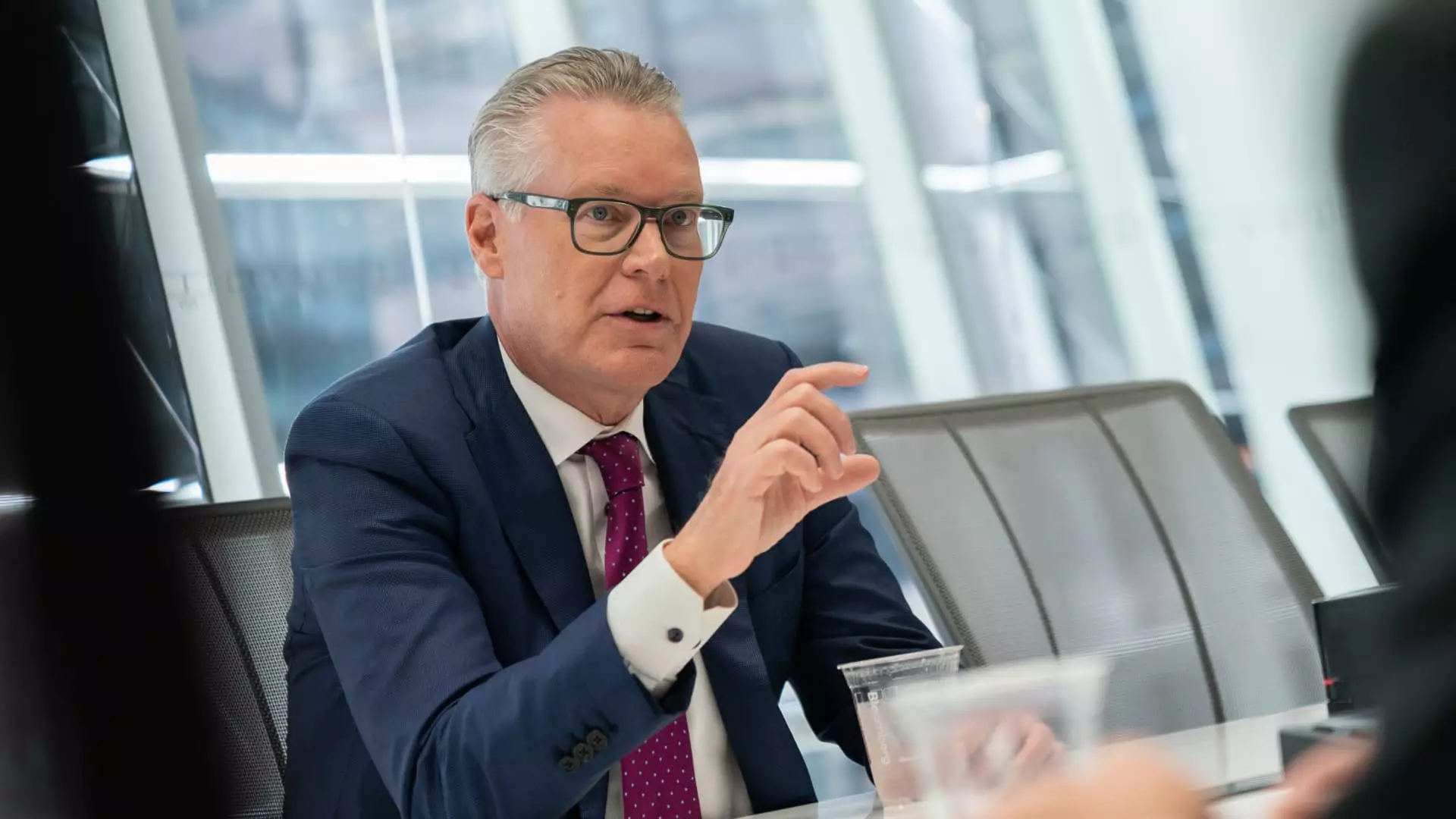As airlines navigate the complexities of a post-pandemic world, the dialogue surrounding regulation has taken on palpable urgency. Delta Air Lines’ CEO Ed Bastian recently articulated a viewpoint that reflects optimism regarding the potential for a regulatory overhaul under the incoming Trump administration. Bastian’s remarks center on President-elect Donald Trump’s commitment to re-evaluating existing regulation and bureaucracy, which he believes could lead to healthy changes for the industry.
Traditionally, the airline sector has grappled with a multitude of restrictions that often inhibit profitability and operational flexibility. Bastian’s assertion suggests that a more streamlined regulatory approach may foster an environment where airlines can better cater to consumer needs and achieve their financial objectives. By characterizing the impending shift as a “breath of fresh air,” Bastian underscores a keen desire within the industry to embrace reforms that may be conducive to growth and innovation.
However, any transition towards deregulation brings with it a series of challenges. The current administration, spearheaded by U.S. Transportation Secretary Pete Buttigieg, has introduced rules that advocate for greater consumer protection. These include mandates for airlines to issue cash refunds when flights are canceled—regulations that some industry leaders perceive as overreach. Bastian’s comment about the “level of overreach” highlights a tension that exists between consumer rights and the operational capabilities of airlines.
Moreover, the history of regulatory enforcement surrounding loyalty programs underlines a facet of industry dynamics that could be further scrutinized. The Department of Transportation has initiated inquiries into how airlines maintain control over the valuation of frequent flyer points, pointing to an environment where the balance between consumer protection and business interests remains contentious. As Delta anticipates future growth, it remains to be seen how these regulations will either bolter or hinder their strategic plans.
In tandem with regulatory discussions, Delta’s optimistic outlook on profitability amidst resilient consumer demand reveals a nuanced insight into market behavior. The airline sector has started to recover from the pandemic-induced slump, underscored by increased household wealth and a hunger for travel. This backdrop presents a fertile ground for both Delta and its competitors to leverage renewed interest in air travel.
The anticipation of solidified sales and profit margins speaks volumes about the industry’s capacity to rebound despite previous setbacks. Delta’s projection aligns with a broader sentiment within the industry that bodes well for future profitability, suggesting that a revitalized regulatory approach could amplify these recovery efforts.
Looking forward, other airline executives have echoed Bastian’s optimism, advocating for a collaborative relationship with the new administration. American Airlines CEO Robert Isom emphasized the necessity for investments in critical infrastructure, such as air traffic control systems, which have faced challenges in efficiency and modernization. The push for regulatory support to foster infrastructure improvement signifies a collective desire within the industry for a proactive approach that balances operational demands against regulatory scrutiny.
Additionally, the prospect of increased merger activity under the Trump administration might evoke mixed responses. As seen with the recent acquisition of Hawaiian Airlines by Alaska Airlines, the environment could be more conducive for consolidation compared to the past years under Biden’s administration. Such changes could alter the competitive landscape, paving the way for airlines to expand their capabilities and offerings.
As the airline industry stands on the precipice of potential regulatory change under the Trump administration, the collective sentiments of industry leaders like Ed Bastian point to an eagerness for a recalibrated relationship with regulators. While the promise of streamlined operations and newfound flexibility imbues the sector with hope, vigilance is essential to safeguard consumer interests. The coming months will deem critical as both industry leaders and regulators navigate this transition, with possibilities for innovation and expanded market opportunities ebbing and flowing in tandem with the evolving regulatory landscape.


Leave a Reply